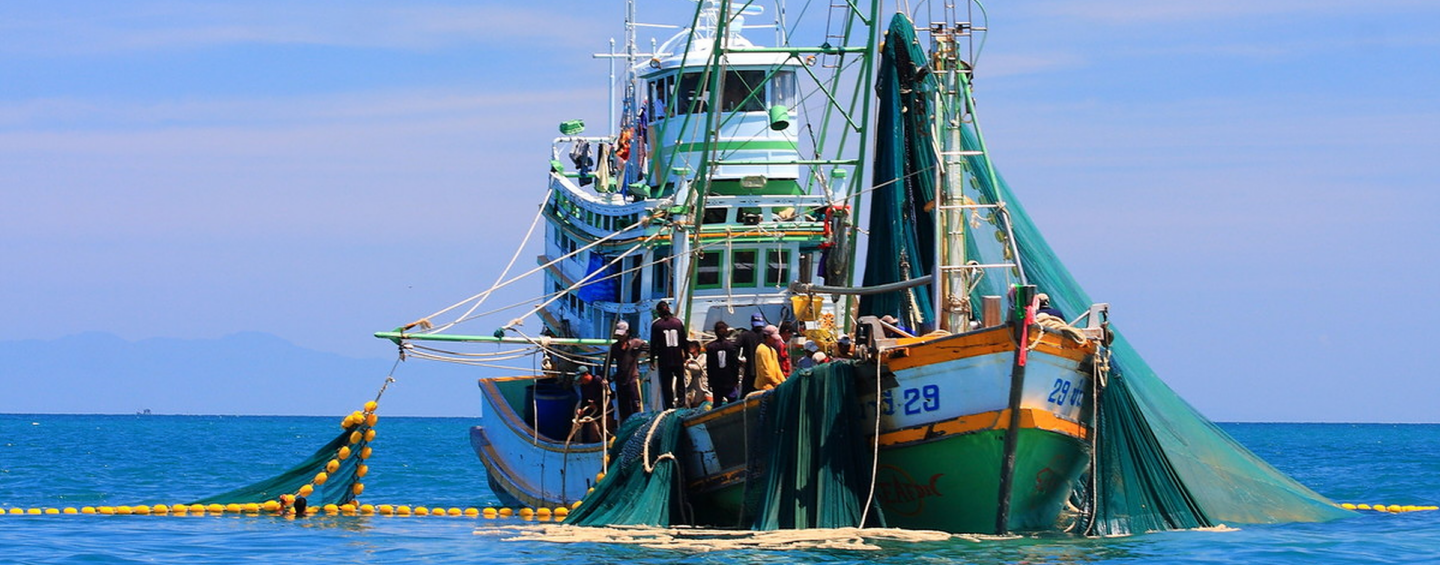After six years of personal engagement and more than a decade of work by Thai and international stakeholders, I am thrilled to congratulate the Thai Sustainable Fisheries Roundtable on the announcement that their Gulf of Thailand mixed trawl improvement project has been formally accepted into the MarinTrust Improvers Program. This is the first-ever FIP to be recognized under MarinTrust’s special multispecies pilot project. And what a journey it has been so far.
As early as the 2000s, environmental groups and others were raising alarms about multispecies trawl fisheries in the Gulf of Thailand and throughout Southeast Asia. These fisheries catch hundreds of species of fish, all of which are utilized for direct human consumption to produce surimi, fish sauces, and other products, as well as for marine ingredients like fishmeal, using both targeted species and trash fish (a catch-all term that includes low-quality fish, species not for human consumption, juveniles, endangered species, and basically anything left in the nets).
By the 2010s, catch per unit effort (CPUE, a measure of how hard fishers work to catch a pound of fish) had fallen precipitously, and estimates were that trash fish made up as much as half of some catches. In 2014, these fisheries gained international attention when news stories broke detailing horrible human rights abuses in some fisheries, and in 2015, the European Union placed a “yellow card” on Thailand, due to unacceptable levels of illegal, unreported, and unregulated (IUU) fishing. In short, the fishery was a mess.
At the same time, 2014 saw the launch of the Seafood Task Force and the formation of the Thai Sustainable Fisheries Roundtable (TSFR), an assembly of leading Thai seafood-related trade associations that came together to address environmental problems in the fisheries in the Gulf of Thailand and Andaman Sea. That same year, SFP first signed an MoU with TSFR to provide guidance and advice on improvement efforts in the Gulf of Thailand.
In 2016, TSFR formally announced its intention to develop a fishery improvement project (FIP) for the Gulf of Thailand. The stated goal of the FIP was to achieve IFFO RS (now MarinTrust) certification. But work was needed to make that goal attainable, and in 2018 a pilot program was announced to trial criteria for assessing complex multispecies fisheries. Much work was needed to apply for certification under this new program, especially to get a FIP up and running, given all the uncertainties over how to best manage these complex fisheries. In 2019, the EU formally lifted its yellow card on Thailand, indicating that key improvements were already underway.
Earlier this year, TSFR announced that their FIP was the first project to apply to the Improvers Program under MarinTrust’s multispecies pilot. And just this month, we got the great news that the project had cleared the MarinTrust approval process, which includes peer review of the assessment documents and workplan, review by a MarinTrust improvers committee, and, finally, approval by the Governing Body Committee. Much remains to be done, and in some ways the work is just beginning in earnest. But we should all stop to appreciate this exciting milestone and how much work by how many people went into making it happen.

